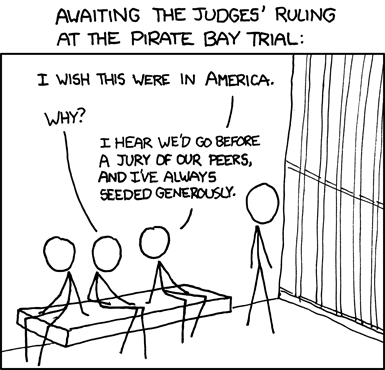A post on Slashdot this morning dealt with a juror who posted twitter comments about a trial (while it was in progress) and the effects of this may be to declare the trial a mistrial.
“Russell Wright and his construction company, Stoam Holdings, recently lost a $12 million dollar lawsuit brought by investors. But lawyers for the firm have complained that juror Johnathan Powell’s Twitter comments broke rules when discussing the civil case with the public. The arguments in this dispute center on two points. Powell insists (and the evidence appears to back him up) that he did not make any pertinent updates until after the verdict was given; if that’s the case, the objection would presumably be thrown out. If Powell did post updates during the trial, the judge must decide whether he was actively discussing the case. Powell says he only posted messages and did not read any replies. Intriguingly, the lawyers for Stoam Holding are not arguing so much that other people directly influenced Powell’s judgment, rather that he might have felt a need to agree to a spectacular verdict to impress the people reading his posts.”
This is an interesting example of the way in which new technology practice is clashing with established rules and ideas. During the recent Pirate Bay trial in Stockholm there was a vertible information orgy with live audio feed, spectators twittering from within (and outside) the courtroom and live bloggers en masse – in addition to traditional media channels. Yet the interesting thing was that the audio tape picked up the judge telling individuals in the courtroom that no pictures could be taken. On a least two occaissions the judge asked whether a laptop and a phone was being used to film the proceedings.
Everybody was filmed, photographed and interviewed entering and leaving the courtroom. All the participants were activly seen courting and presenting their cases to the media on the courtroom steps – but no photographs in the courtroom.
When a witness who was to be heard at a later date was discovered in the audience he was asked to leave. Before leaving he asked whether he was allowed to listen to the radio. The judge understood the futility of the rules when he replied – well you cannot stay in here.
The “no images” rule in Sweden or the no communicating in the US are rules which need to be explained logically to the participants. Naturally the principles of justice and equality must be upheld and should not need to be questioned at every turn…








 photo from my
photo from my